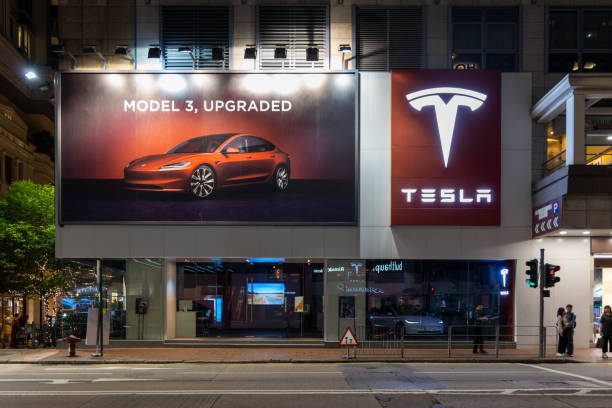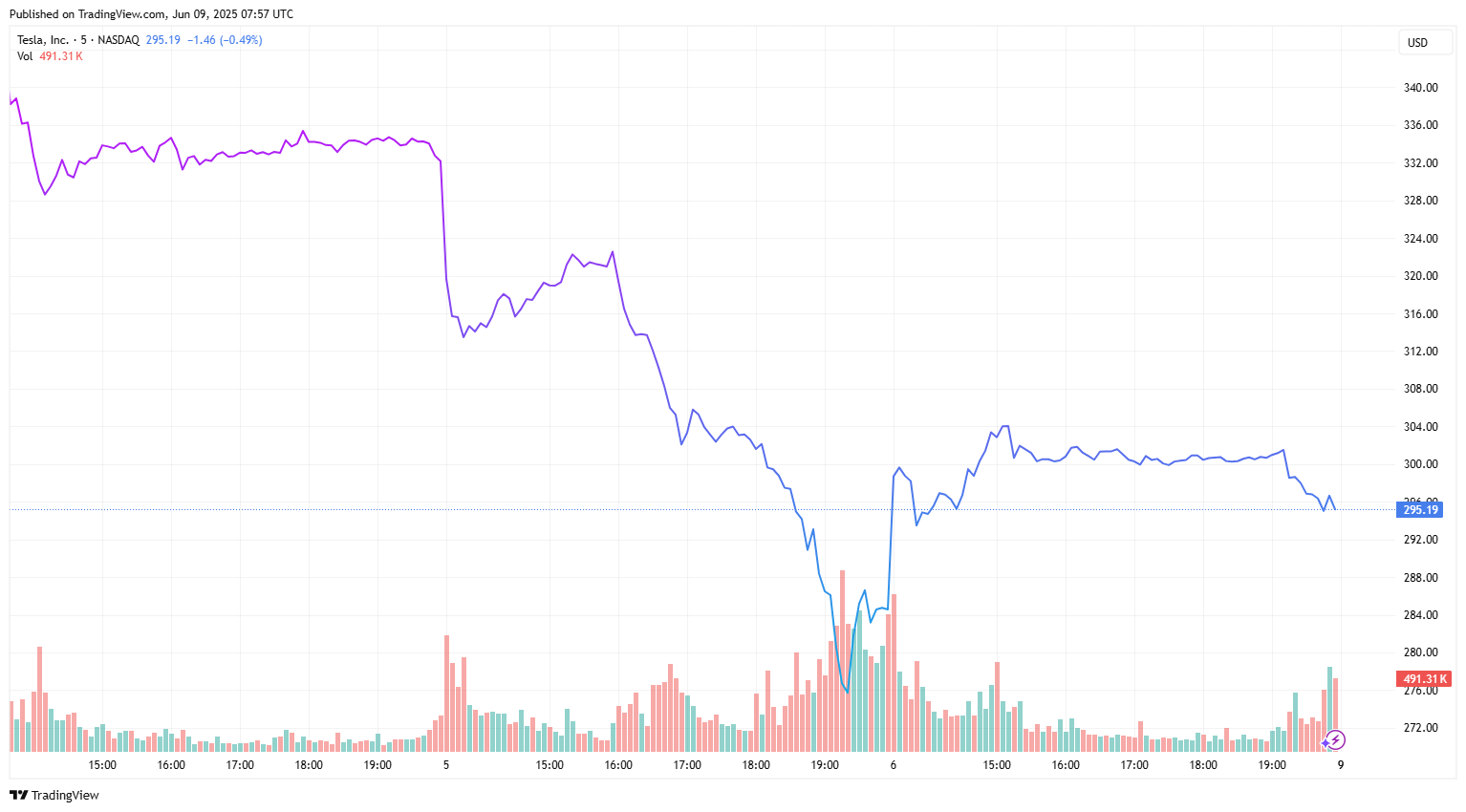- Tesla Stock Hits Record High as Robotaxi Tests Ignite Market. Why Is Goldman Sachs Pouring Cold Water on Tesla?
- Gold Price Hits New High: Has Bitcoin Fully Declined?
- Gold jumps above $4,440 as geopolitical flare, Fed cut bets mount
- U.S. November CPI: How Will Inflation Fluctuations Transmit to US Stocks? Tariffs Are the Key!
- US Q3 GDP Released, Will US Stocks See a "Santa Claus Rally"?【The week ahead】
- December Santa Claus Rally: New highs in sight for US and European stocks?

Last week, global media buzzed about a public spat between U.S. President Donald Trump and billionaire Elon Musk. The Tesla CEO had previously praised Trump during last year’s presidential election, reportedly spending hundreds of millions to support Trump and other Republican candidates.
However, their relationship soured last week over Trump’s push for the “Big Beautiful Bill,” which includes plans to cut electric vehicle (EV) tax credits—a move that directly impacts Tesla, the leading U.S. EV manufacturer founded by Musk.
The clash between Musk and Trump triggered a sharp sell-off in Tesla’s stock, with shares plummeting 14% in a single day last Thursday, wiping out roughly $138 billion in market value. Musk’s wealth also took a hit, shrinking by over $30 billion.

Source: TradingView
So, is Tesla headed for a bear market?
Trump’s plan to reduce EV tax credits has raised concerns. Gene Munster of Deepwater Asset Management warned that this could lead to a 15% drop in Tesla’s deliveries in 2025. Tesla is already facing challenges in Europe, where the European Automobile Manufacturers’ Association (ACEA) reported a nearly 53% year-over-year decline in new Tesla registrations in the EU for April.
Still, some analysts believe the Musk-Trump feud is unlikely to derail Tesla’s long-term goals, particularly its highly anticipated autonomous taxi service. Tesla plans to launch its self-driving taxi service in Austin this June, and most analysts expect the federal government won’t stand in its way.
Munster views autonomous vehicles as a critical part of “Physical AI,” noting that the U.S. has a vested interest in leading both digital and real-world AI innovation. He predicts “cooler heads will prevail” and Washington will continue to support this technology.
“The Musk-Trump relationship does impact Tesla’s stock and investor sentiment, but in terms of Tesla’s actual business, I’ve never viewed Trump’s election as inherently positive or negative for Tesla,” said Seth Goldstein, an analyst at Morningstar. “So, despite the rift between Trump and Musk, I don’t see it as having a meaningful positive or negative effect on Tesla.”
Goldstein noted that Musk and other EV makers are more concerned about broader political pressures to reduce or eliminate subsidies.
Morgan Stanley analyst Adam Jonas added, “We believe the gradual phase-out of EV tax credits under the Better Business Bureau (BBB) is not critical to TSLA’s long-term outlook.” He emphasized that “AI leadership, autonomy/robotics, manufacturing, supply chain restructuring, renewable energy, and critical infrastructure” are areas where Tesla holds significant advantages, largely independent of political dynamics.
Read more
Before making any trading decisions, it is important to equip yourself with sufficient fundamental knowledge, have a comprehensive understanding of market trends, be aware of risks and hidden costs, carefully consider investment targets, level of experience, risk appetite, and seek professional advice if necessary.
Furthermore, the content of this article is solely the author's personal opinion and does not necessarily constitute investment advice. The content of this article is for reference purposes only, and readers should not use this article as a basis for any investment decisions.
Investors should not rely on this information as a substitute for independent judgment or make decisions solely based on this information. It does not constitute any trading activity and does not guarantee any profits in trading.
If you have any inquiries regarding the data, information, or content related to Mitrade in this article, please contact us via email: insights@mitrade.com. The Mitrade team will carefully review the content to continue improving the quality of the article.

